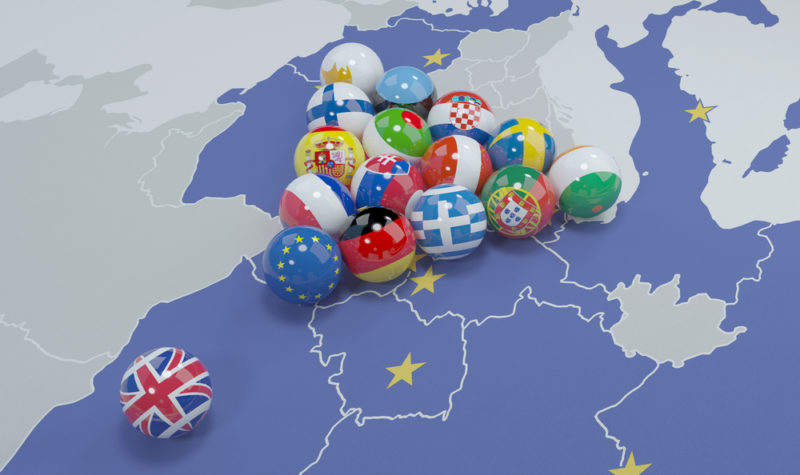ONS data could be masking the full implications of Brexit

Investors should not assume we have seen the full implications of the UK decision to go it alone. Like history, the future is another country; they do things differently there.
One of the useful things taught in economics, is to distinguish between the ‘short term’ and the ‘long term’. John Maynard Keynes (whose wisdom has been smothered by what seems bone headed prejudice) added the droll observation that in the long run we are all dead. That thought brings me back to our current economic circumstances post ‘Brexit’ and the various comments made about it from various tree tops.
The last couple of months
Today the Office of National Statistics known (also by the appropriate economic initials ‘ONS’) informed us that to date, the popular national decision to quit the large and prosperous EU market of 400 million people has had no major impact on the UK economy. My first thought, was to ask what chemical stimulant the compilers of this assessment were “on”. I would have thought that an enforced 13 per cent devaluation of the currency against the dollar was a pretty major impact, for both good or ill. It was the most tangible verdict we have had so far from the outside world on the economic merits of that decision.
Presumably, the consequential halving of the bank rate to an almost non existent 0.25 per cent (and potentially even lower into microscopic monetarism) was also a major impact; along with the Bank of England’s significant life boat launch of liquidity creation. These all seem to my tiny mind, important short term influences on the economic outcome over the last two months or so. Were they not summoned forth by the Brexit referendum vote? I would suggest in a contrarian sort of way, that the Brexit vote has not passed off without event but has already had a major impact on the UK economy. So far we have seen only the more benign effects, including a more competitive pound exchange rate and the lower cost of borrowing.
Consumer confidence
Much is made of the finding that consumer confidence is high and that the great British public have revived their spending. But before we leave the subject, I offer an explanation for that confidence amongst consumers.
As far as I can tell, consumer confidence is at variance with business confidence which seems less buoyant. Consumers over the last two months have been wading in economic cross currents. It is that confluence which makes them happy with life. On the one hand, they are still motivated by the recent but passing fact that real incomes have been rising for most of 2016 simply because even fairly modest pay increases have been high in relation to even more modest inflation rate. People have got used to the idea and it still lingers in their minds as a reality – even as events move to snuff out that advantage.
Credit cards
Moreover, they have just had a mighty fall in borrowing costs seemingly driving them to rush to put even more debt on their credit cards. No wonder they are still full of confidence in the short term. But the short term can not last and nor I suggest, can the high consumer confidence of the past two months. Inflation is at last making a long awaited return and will be with us in due course – in the longer term. Building an investment policy of the current consumer confidence seems as sensible as building houses in a flood plain or a bog. It will prove a challenge for retail shares.
Equities have risen on a high tide of low cost borrowing and credit creation
I might add that another bye-product of the still very recent Brexit vote, has been the rise in the UK stock market; or at least some of it. Saver’s living of saved income, deprived of even more bank and building society interest, have only the equity market to turn to in the hope of getting a decent yield on which to survive. That need will grow, as dollar based fuel and energy costs hit UK citizens in their pockets along with the import cost of all that stuff we buy in supermarkets and elsewhere. How much of that they will be able to put on the credit card is an interesting question?
The fact remains, that the true impact of Brexit lies ahead in the swirling mists of a now even mistier future. What facts we know are somewhat daunting. They include the reported fact, as I suppose it to be, that the UK can not enter free trade deals with the world trade association countries until we have been accepted as a member by all the other members – which apparently includes the EU – and that it seems to be a process that takes a lot of time to complete. It looks an Alice through the looking glass prospect! Quite what we do with our exports in the hiatus, I do not know? It seems a situation where there could be many a slip between cup and lip!
“Here be dragons…” probably
I do not wish, like some old cartographer, to get into the “here be dragons” styled of map making. But I can not too easily dismiss the reasonably likely consequences, of the UK economy being outside the EU’s single market of some 400 million consumers. It is true that the UK has the advantages of the rule of law, the English language and being in a good time zone for international business; but so too, in one way or another, do those nations remaining inside the single market. The significance of those attributes are that they are and were geared to opportunities inside the great single market so far as foreign investors are concerned. We are to Europe as Hong Kong was or is, to China.
Comments (0)